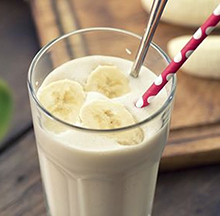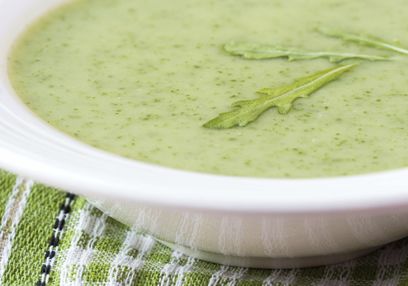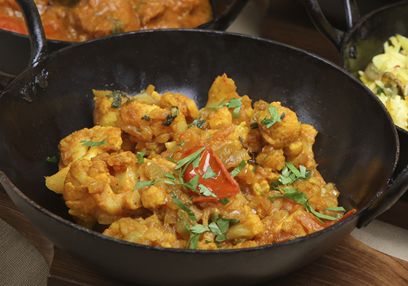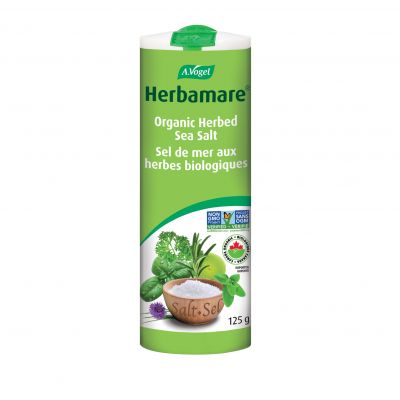The answer is yes! Your diet is one of the most effective ways of looking after your blood pressure and your health in general. Let’s see how you can use your diet to help lower your blood pressure.
General dietary advice
- Cut back on salt
This is the most obvious dietary change recommended to those of us with high blood pressure. A low‑sodium diet high in at least two of the minerals magnesium, calcium and potassium is thought to be the most beneficial. - Eat more fruits and vegetables
Pay special attention to those that are rich in potassium, which can help to balance out the negative effects of salt. - Reduce your intake of saturated fats
It’s a good idea to cut back on fat if you have high blood pressure, but you need to make sure to cut back on the right kind of fat. Fat is a source of essential fatty acids that your body needs but can’t produce itself. Try to avoid saturated fats, as they raise your cholesterol levels and can increase your risk of heart disease and stroke.
It can be difficult to know which foods are best for high blood pressure, but checking the label can be a great starting point in informing you of what’s actually in what you eat.
Here are six fantastic foods that are not only healthy, but can actually help lower your blood pressure.
1) Beets
The common red beet is actually an absolute power vegetable! From lowering blood pressure, to improving sports performance, to being extremely rich in essential vitamins and minerals like iron, this dependable root vegetable does it all! Check out our article “Beetroot juice, heart health and periods – what’s the link?” for all of the benefits of this awesome vegetable.
When it comes to lowering blood pressure, beets are an excellent source of potassium and nitrates, which are both thought to be important in helping to manage blood pressure. The chemical formation of nitrite from the dietary nitrates in the juice is thought to lower blood pressure. Nitrite can be converted to nitric oxide (NO) by the cells that line blood vessels; this nitric oxide is a powerful blood vessel dilator, which results in lower blood pressure.
One study found that consuming just 100 g of beet juice can help significantly reduce blood pressure in as little as 24 hours! A 2013 review also found that beet consumption can reduce blood pressure by 4–10 mmHg in just a few hours. This reduction in blood pressure then also reduces the chances of strokes and cardiovascular disease.
Not sure how you should incorporate beets into your diet? Try Biotta’s 100% organic Beetroot juice, which is packed full of natural vitamins and minerals. Or why not try your hand at making a super nutritious beet smoothie?
2) Pomegranate
Pomegranates have powerful antioxidant and anti-inflammatory properties and have long been linked to regulating blood pressure. A study carried out at Scotland’s Queen Margaret University found that those who drank 500 ml of pomegranate juice experienced a reduction in blood pressure and lower levels of unsaturated fats, which are linked to the storage of abdominal fat.
Pomegranates’ ability to act as an angiotensin‑converting enzyme (ACE) inhibitor is what makes it so effective in lowering blood pressure. Inhibiting ACE helps blood vessels relax and open up which in turn lowers blood pressure and allows more blood and oxygen to reach the heart.
3) Dark Chocolate
All you chocolate lovers out there will be pleased to see dark chocolate on the list! A Harvard study found that eating a small square of dark chocolate daily can help lower blood pressure. This is due to the heart‑healthy benefits of the flavonoids found in unsweetened chocolate, which cause blood vessels to dilate.
It’s worth mentioning that not all chocolate has this beneficial effect. The higher the percentage of cocoa solids, the more heart-healthy flavonoids the chocolate contains. Try to aim for dark chocolate containing around 60% to 70% cocoa.
4) Spinach
Spinach is incredibly rich in nutrients and has a number of great health benefits. It’s packed with heart-healthy nutrients like potassium, folate and magnesium, which all help lower blood pressure. This leafy green vegetable’s high potassium content can counteract sodium’s negative effects on your blood pressure. Learn how to cook spinach here.
5) Flaxseeds
Flaxseeds are a great source of fibre and omega-3 fatty acids, which can reduce inflammation throughout the body and improve the health of your heart and circulatory system. Research has found that consuming flaxseeds resulted in a pronounced decrease in both systolic and diastolic blood pressure. This is thought to be mainly due to the alpha linolenic acid they contain.
Experts recommend consuming ground flaxseeds, as the whole seed can sometimes pass through the body mostly undigested. You can easily buy flaxseeds already ground or buy them whole and grind them up yourself or mix them into smoothies and yogurt.
6) Garlic
The beneficial effects of garlic on lowering blood pressure are thought to be due to its sulphur-containing compounds, which include allicin, diallyl disulphide and diallyl trisulfide. One 2016 study concluded that aged garlic extract is effective in reducing uncontrolled high blood pressure in a large proportion of those who took part in the study. They also found that garlic had the potential to improve arterial stiffness, inflammation, and other cardiovascular markers in people with hypertension.
What’s more, these findings aren’t recent; they’ve been around for thousands of years! Traditionally garlic was not used for cooking, but rather, for medicinal purposes such as maintaining normal heart function and supporting blood pressure and circulation. These traditional uses of garlic can be found in both the food and natural supplement form.
What else can I do for high blood pressure?
Taking steps to changing your diet, even if they’re small changes at first, is a great place to start. You can also lower your blood pressure by making lifestyle changes such as reducing stress and exercising more.
References:
https://www.ncbi.nlm.nih.gov/pubmed/22414688
https://www.ncbi.nlm.nih.gov/pubmed/23596162
http://www.express.co.uk/news/uk/348639/Pomegranate-a-day-keeps-middle-age-at-bay
https://universityhealthnews.com/daily/heart-health/pomegranate-juice-benefits-lower-blood-pressure-and-improve-your-heart-health/
https://www.aarp.org/health/medical-research/info-03-2011/dark-chocolate-can-help-lower-your-blood-pressure.html
https://www.naturalmedicinejournal.com/journal/2014-02/flaxseed-reduces-high-blood-pressure
https://www.ncbi.nlm.nih.gov/pmc/articles/PMC4734812/






